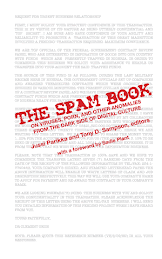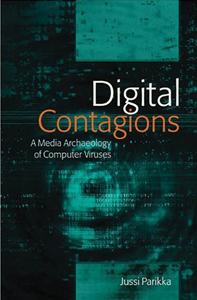What was refreshing was Barad's insistence on the mode of "critique" as harmful for contemporary cultural analysis. It does not provide the solutions we need, or is not useful as a tool to tackle the problems we face. I agree completely. We need accounts of the "weird materialities" that haunt technical media culture; biodigital lives; ecocatastrophy; etc. -- accounts that do not rely on a) mode of reflection/representation as the key "method" or assumption, b) and hence do not rely on dualist ontologies but acknowledge how such issues as ethics are distributed on all levels of being, so to speak. Of course, these point resonate strongly with the points re. vitalism that Colebrook and Braidotti talked about yesterday.
Key notions that hence emerged were: entanglement (of matter and meaning); agential realism (that I would see as a relevant partner for ecological ontologies in the manner of e.g. Matthew Fuller's media ecologies etc); scientific literacy that should not only be a literacy of the scientists and engineers; complex notions of temporality that do not rely on the past presence of pastness, and the coming arrival of future but in a continuous relocation and reiterative reconfiguration of temporalities (sounds very Serresian). Barad's brilliant quantum physics example demonstrated this well. (I won't even dare to try to explicate that). Also the notion of diffraction was continous on the table, so to speak. Diffraction is an alternative concept to that of reflection, and hence a good vehicle for a post-representational cultural analysis. Barad produced this useful division:
Reflection/mirrors:
- geometric optics
- knowledge based on distancing the knower from the object
- and hence the division of subject vs. object
- objectivity based on such notions
Diffraction
- physical optics (based on a different distribution of differences)
- quantum physics
- knowing is about direct material engagement
- subjects and objects are intertwined, entangled
- objectivity is about accountability to the marks on the body; responsibility to the entanglements of which we are a part.
What is remarkable to my eyes is that these ideas can be made resonate very strongly with research that deals with actual cultural practices. Even without direct references to Barad, for example Katve-Kaisa Kontturi is doing work with visual arts that takes into account such modes of knowing that the "model" (excuse me for calling it a model) is suggesting; Milla Tiainen is doing similar stuff with performance and vocality; both of them involving ethnographic methods in their neomaterialist works. As well I could imagine Barad's ideas' usefulness for considerations of network culture, with its heterogeneous assemblages that cannot be reduced neither to any human agencies nor to the various layered technicalities of protocols, hardware, software, networks, etc. (And I guess the fact that her talk was a video lecture, streamed live from California testifies to the modes of transition, connectivity, etc she talked about ). Instead, we are dealing with such ecological agencies that involve the various parts in a mutual becoming that I have so far tried to open up with notions such as "assemblage", or ethologies, but increasingly aware that for example Whitehead or Barad might give as interesting clues.
As my computer battery is dying the death, I need to finish early. Through some of the discussions, its still clear that some of the feminist thinkers are way ahead of their time (if such an idea of "ahead of time" can be said to exist after Barad's talk!) in rethinking the practices and discourses that are crucial not only for particular politics of gender but also for the wider ecological contexts (whether ecologies of nature, or of the subject/psyche). Another thing is the question whether such huge conferences are necessary, or good for the psyche. Or whether anyone should be booked to stay at Ibis Hotel Utrecht. But then again, perhaps that's just my personal bitterness.








I just started reading her book _Meeting the Universe Halfway_ and I agree, she is amazing. No wonder her approach continues to gain interdisciplinary appeal. I am simultaneously looking for another author who might be most compatible with her philosophy...you mention several, but, do you have a favorite?
ReplyDelete